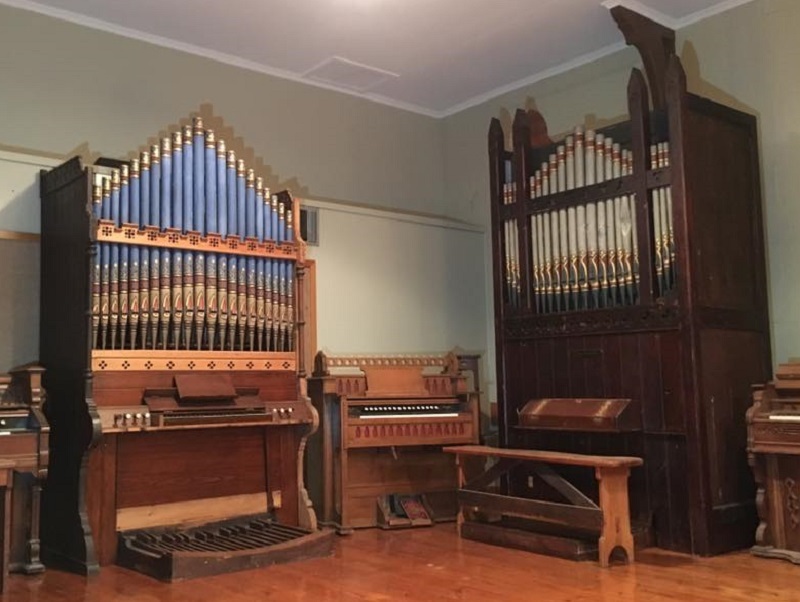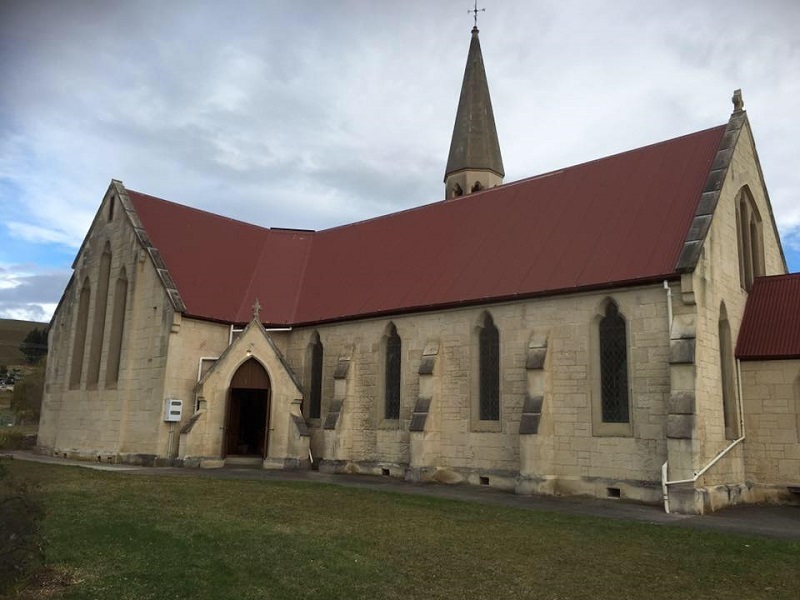Organ museum closing doors
Ashley Smyth
10 May 2023, 11:48 PM
 New Zealand Organ Museum curator Dr Ron Newton with a French harmonium from the 1860s, which came from a Nelson music shop.
New Zealand Organ Museum curator Dr Ron Newton with a French harmonium from the 1860s, which came from a Nelson music shop.The end is near for the New Zealand Organ Museum, based in the small North Otago town of Herbert.
The museum, which has been housed in St John’s Presbyterian Church since 2016, a year after the church stopped holding services, will close at the end of May, with the building going on the market.
Organ builder, restorer, and tuner Dr Ron Newton is one of three trustees of the Organ Museum Trust.
"And I also style myself as the curator, which is probably true”.
He said it was “heartbreaking” to have to leave the premises, which has been home to 19th Century pipe organs, harmoniums, reed organs, electronic organs, and other instruments, along with an enormous amount of books, music and other papers of significance.
“We’ve just got hundreds and hundreds and they’re all packed into boxes. We’ve got 288 storage boxes which all the books, records and music are going into.”
Although, arguably the most valuable part of the museum is the limitless wealth of knowledge Ron himself brings to every piece stored in the 1866 Ōamaru stone chapel, along with other items scattered elsewhere around the country.
“This isn’t the only place. It has been the main place for a while, but the whole museum has been in and out of storage for a long time, because finding a permanent home may never happen.”
The museum trust began in 1989 with the acquisition of two pipe organs - an 1885 Sanford, built in Christchurch, which is a copy of the other one - an 1881 kitset organ built in London by Henry Jones.
Ron likes to keep the organs together, but it is the New Zealand-built one which holds particular significance.
“That one’s special, because in 1911, Captain Scott and the crew of the Terra Nova attended church in Lyttelton where that organ was. They were there for quite a number of months, so they would have taken turns pumping the bellows handle for whoever was the organist at the time.”

The Jones (left) and Sandford organs. PHOTO: Supplied
The organ ended up at Hanmer Springs, and Ron got some people together who bought it, and put it in the Lyttelton Museum.
“So that was the beginning of the Organ Museum Trust, was the purchase of that instrument.”
The organ remained at Lyttelton Museum until the building was damaged in the 2011 earthquake.
“I brought it down after the earthquakes and put it in the Oamaru Railway Station where it was going for the Scott 100 year commemoration in 2013.”
Ron is hoping the Lyttelton Museum, now that it has been rebuilt, will take the piece back again.
He did not know what he would do with its other half, but the Ashburton Museum was a possibility.
Two other pipe organs have been moved to Dunedin, one in St Joseph’s Cathedral, and one is in the convent chapel next door, he said.
“A lot of stuff isn’t going to be kept . . . A lot of other instruments may have to be turned into other things.”
There is a container on the property for Ron’s workshop gear and tools, which will be filled then removed.
Most of the instruments in the old church are still playable, Ron said.
“If anyone wants a reed organ, or something like that - they are more than welcome.”
He has until the end of May to get everything out.
“We will be loaning out as much as we can, but a lot of stuff is going to have to be trashed, unfortunately. It’s got nowhere to go, and it’s really sad.
“All these instruments would not have survived, if I hadn’t rescued them in the first place, and given them another lease of life. At the end of day . . . there’s nowhere for it to go.”
Ron has a mammoth task ahead. The building is full to overflowing, and he has been spending time, when he would usually be travelling the country tuning instruments, sorting and clearing it out.
“I only earn money three times a year, so I’ve lost a whole income until September . . . [but] I can’t leave this.”
Ron has always been involved with churches, music, building and engineering . . . and running the museum has been a culmination of all those passions.
“I’ve been working by myself for 26 years, and collecting . . . I bought everything out of my own very, very meagre income, or people have gifted me stuff, but I’ve had to go and get it.
“So it’s basically my life wrapped up in everything. I still think it’s been worthwhile. We’ve had a lot of people through.”

St John's Presbyterian Church, Herbert, has been home to the New Zealand Organ Museum since 2016. PHOTO: Supplied




